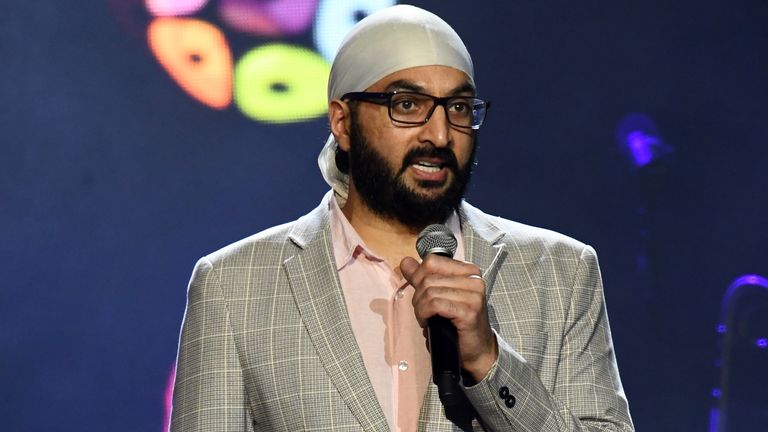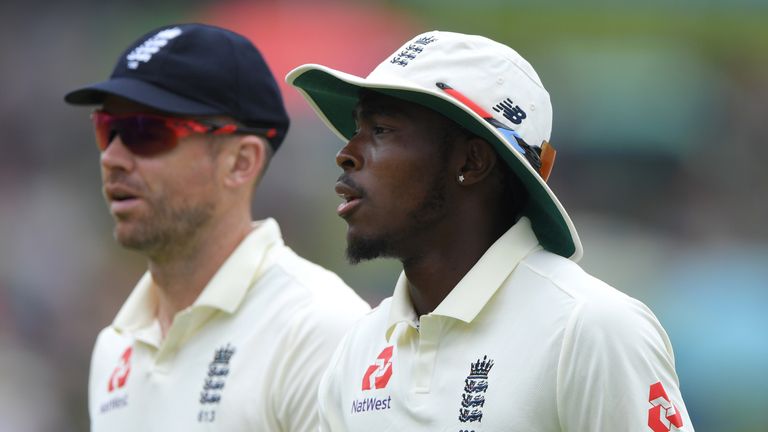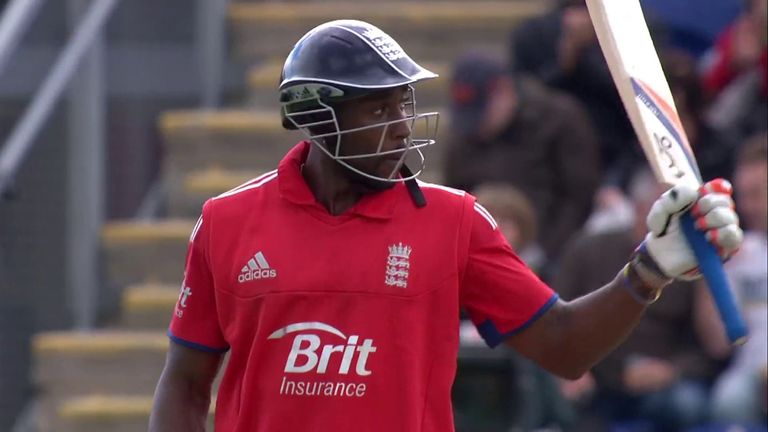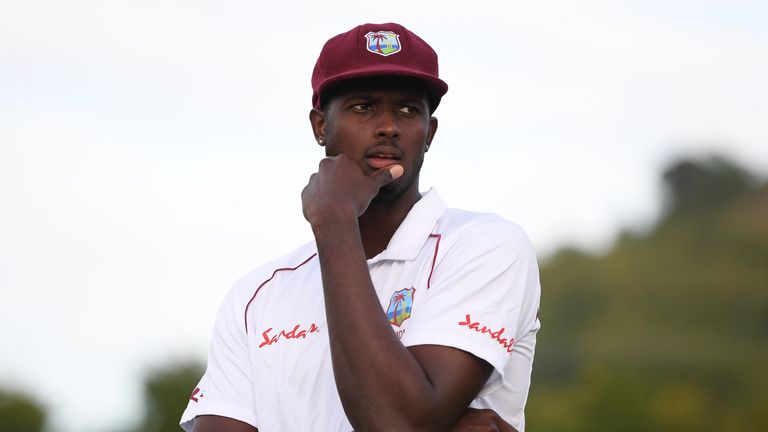Black Lives Matter: Monty Panesar says England should hold minute's silence againt West Indies to support movement
Sunday 14 June 2020 10:19, UK
Monty Panesar believes England should initiate a minute's silence ahead of the first Test against West Indies to support the Black Lives Matter movement.
England seamer James Anderson and West Indies captain Jason Holder have both said discussions will take place among their respective teams about how to promote racial equality during their behind-closed-doors Test series next month at The Ageas Bowl and Emirates Old Trafford.
A number of sports stars have spoken out about racism since the death of George Floyd, who was killed in Minneapolis in May when a white police officer knelt on his neck for nearly nine minutes.
Speaking to Sky Sports News, Panesar said England should adopt a similar approach to Ajax and Heracles Almelo, who stood still for the first minute of their Eredivisie match in November after a player from fellow Dutch side Excelsior was subjected to racist abuse.
He feels England could have done that after seamer Jofra Archer was racially abused during this winter's tour of New Zealand.
"What I felt the England team should have done when Archer was racially abused is had a one minute's silence in the next Test match," former England spinner Panesar said.
"I don't think cricket faces racism as strongly as football does but I thought that could have been that opportunity. Ajax did it, saying we are not going to play football if there is racism.
"So, at the start of this Test match, it is a great opportunity for a one minute's silence and to say we are not going to play if there is racism in our society. I think it would be a brilliant example. Sport plays a part in spreading strong messages."
Panesar, the first Sikh spinner to play for England, has hailed the diversity within the current England set-up but admits that the England and Wales Cricket Board needs a broader range of cultures in the board room.
"I think the England cricket team is a prime example of how multi-national companies can learn," said the former Northamptonshire and Essex bowler.
"In the World Cup Super Over we had an Irish guy [Eoin Morgan] giving the leadership skills to a guy from Barbados [Jofra Archer], while we had a New Zealander [Ben Stokes] hitting sixes and Jos Buttler from England. That is diversity.
"Morgan wanted to know the diverse range of his players and early on had conversations in front of the team with Moeen Ali and Adil Rashid about the Muslim religion, their practices and traditions.
"Forty or 50 years ago you had to be an upper-class white person to play for England but things have changed. Morgan has said the [World Cup-winning] team drew strength from their diversity.
"I think other sports can learn from the ECB and the England team about how to embrace diversity and strengthen their team.
"I do think it needs to start growing in the [management] sector. A lot of positions are held by white people, so we need to start bringing in people of different backgrounds into leadership positions.
"That is something the ECB will probably look into. I believe the ECB can be the leading governing body in this country for all other companies to learn from."
Former England batsman Michael Carberry told Sky Sports News on Thursday that black cricketers feel like they are risking their careers if they try to confront prejudice in dressing rooms.
Panesar, who joined Carberry on England's Ashes tour of Australia in 2013-14, added: "I think the ECB and PCA do a brilliant job but I don't know how hard it is for a black person and that is maybe something they need to address with someone like Michael Carberry.
"It is very difficult to understand what Michael went through - I think the racism of black people is greater than any other race. It must be difficult for him to talk about such sensitive topics.
"I think you have to be in the shoes of a black person to understand what real racism is. It is different to someone like myself, who is Asian.
"I have seen it myself, in my younger days - when I was with some of my black friends, I would often see more police cars."
Responding to Carberry's comments, the ECB told Sky Sports News: "We listened carefully to Michael Carberry's interview and admire him for speaking out on this crucial topic. We know that systemic racism spans institutions and sectors across the country and we would be naïve to think that sport and cricket is immune.
"We have made big strides over the past few years. Our 2018 Inclusion and Diversity Plan drove investments in diversifying cricket, breaking down barriers and reforming our structures.
"It supported reform in our approach to participation and growth with the launch of our South Asian Action Plan which showed how much we needed to do across the recreational game, elite pathway, coaching, attendance, media, communications, administration and culture.
"This is already having positive results for all BAME groups, including the installation of non-traditional playing facilities in urban areas, the recruitment of BAME female community mentors and the delivery of cricket at schools with a higher than national average representation of BAME pupils. This is a lengthy process but we are committed to making it a success.
"We know we have a long way to go until we are fully representative as a sport, particularly in relation to black communities. That's why voices like Michael's are so important and we will continue to listen, educate ourselves and face uncomfortable truths in order to create action and long-term change."







